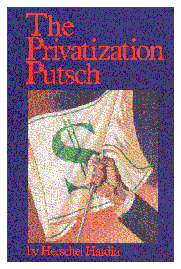
During the run-up to the May 28, 1996 British Columbia general election, the two foremost contender parties”?the incumbent BC New Democratic Party (NDP) and the BC Liberal Party (Liberals)”?took divergent stands on their future plans regarding the province’s publicly-owned railway, BC Rail. “Liberal leader Gordon Campbell placed BC Rail front and centre as an election issue when he released his economic plan before a television audience: A key component of the plan [had] a new [Liberal] government privatizing BC Rail:to earn a one-time $1-billion revenue windfall” (Lewis, 1996). When faced with northern opposition to the privatization from within his own party, Campbell stated: “The BC Rail sale is part of our policies, and the candidates are expected to support them. I’ll have to talk to [the dissenter(s)]” (Lewis, 1996). NDP leader Glen Clark, on the other hand, made it clear to BC voters that his party had no intention of divesting the province of its publicly-owned railway transportation network. The Liberals lost the 1996 election. Looking back on the campaign in early 1997, Campbell admitted to a “litany of errors that:cost his party the election” including “the alienation of voters in the north with a promise to privatize B.C. Rail” (Palmer, 1997).
Apparently, Mr. Campbell learned from the mistakes made during the 1996 election. In campaigning for the May 15, 2001 British Columbia general election “he disavowed some of the biggest mistakes from [the 1996] campaign”?the promise to privatize BC Rail is the best example” (Palmer, May 2001). The official Liberal platform promised that “a BC Liberal Government will: not sell or privatize BC Rail” (Campbell & BC Liberals, n.d.). Having successfully anticipated the desires of the electorate and made campaign promises accordingly, the Liberals were elected in a record-breaking landslide victory, taking every seat in the BC legislature except 3. On July 15, 2001, British Columbia Transport Minister Judith Reid reaffirmed that: “We [the Liberals] have made our promise that we are not going to privatize or sell BC Rail: The passenger service is really important to the lives of people in northern communities” (Daniels, July, 2001). A year after the Liberals took power, the BC public had not changed its collective mind about the privatization issue and a McIntyre & Mustel poll released June 21, 2002 found that “British Columbians don’t want to privatize ICBC, B.C. Rail, BC Ferries or the B.C. Lottery Corp” (Beatty, 2002). However, as early as September 2001, rumours had abounded “that the Liberals might tinker with their promise not to privatize B.C. Hydro or BC Rail, both of which have assets valued in the billions of dollars” (Palmer, September 2001). Those rumours have proven factual and this essay will examine the issues surrounding the privatization of public assets, paying particular attention to the British Columbia crown corporation BC Rail.
Next Week: We take a look at the issue from the side of the NDP political party.
References:
Beatty, J. (June 22, 2002). We’ll drink to booze privatization, but not Hydro. The Vancouver Sun, p. E1 / Front.
Benedict, W. (2002). The debate over the public sector: Major issues. Retrieved September 24, 2002, from
http://www.cute1.org/debate_over_the_public_sector.htm
Boei, W. (February 10, 1998). Competitor delighted as Westel goes on block. The Vancouver Sun, p. D1 / Front.
Cameron, D. (1988). In defence of public enterprise: A critique of the economic efficiency Case for privatization of crown corporations. Ottawa Ontario: Canadian Labour Market and Productivity Center
Campbell, G. & BC Liberals. (n.d.). A new era for British Columbia: A vision for hope and prosperity for the next decade and beyond, (p. 9). Retrieved September 10, 2002, from http://www.bcliberals.com/files/bcliberals_platform.pdf
Daniels, A. (July 17, 2001). BC Rail taking on `new spirit’: `People’s railway’ won’t be privatized, transport minister promises. The Vancouver Sun,, p. C5 / Front.
Daniels, A. (October 24, 2001). Without more cash, Royal Hudson facing end of line. The Vancouver Sun,[ei ]p. C1 / Front.
Hogben, D. (December 15, 2001). BC Rail ditches truck service. The Vancouver Sun,[ei ]p. E1 / Front.
Hunter, J. (March 16, 1995). Put BC Rail on track to privatization, report urges. The Vancouver Sun, p. A1.
Landry, P., Yako, L. & BC Trucking Association. (January 4, 2000). Private trucking firms shouldn’t have to compete with BCR. The Vancouver Sun,, p. A11.
Lewis, B. (May 15, 1996). Rail on a roll: Jewel is election goodie. The Vancouver Province, p. A28.
Palmer, V. (February 24, 1997). Mr. Campbell’s my-fault speech a strong start on a long road. The Vancouver Sun, p. A10.
Palmer, V. (September 7, 2001). Liberal chopping target: Five per cent. The Vancouver Sun, p. A16.
Palmer, V. (May 12, 2001). This is how things are done: Gord’s way. The Vancouver Sun, p. A18.
Pirie, M. (1987). Principles of Privatization. In M. A. Walker (Ed.), Privatization: Tactics and techniques (pp. 105-124). Vancouver British Columbia: The Fraser Institute.
Schreiner, J. (September 2, 1995). BC Rail may follow in CN’s tracks. The Financial Post, p. 12
Spencer, K. (December 17, 2000). Royal Hudson off the rails. The Vancouver Province,p. A8.
Vogel, D. (March 2000). Are spending cuts and privatization the answer for BC? Vancouver, British Columbia, Canada: Canadian Center for Policy Alternatives”?BC Office.
Wilson, M. (March 17, 1995). Industry hailing `private’ BC Rail. The Vancouver Province, p. A42
Wilson, M. (July 8, 1998). Westel sold in a $55-m deal. The Vancouver Province, p. A26.
Wayne E. Benedict is a Locomotive Engineer at BC Rail and President of the Canadian Union of Transportation Employees Local 1. He is working toward his Bachelor of Administration in Industrial Relations and Human Resources at Athabasca University.
